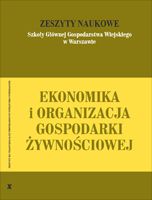Main Article Content
Article Details
Agriculture negotiations in the WTO - six ways to make a new Agreement on Agriculture Work for Development. Working Draft, August 2003. [w:]http://www.cafod.org.uk/policy
GULATI A., NARAYANAN S., The subsidy syndrome in Indian agriculture. New Delhi; Oxford University Press, 2003.
IATP, United States dumping on world agricultural markets, WTO Cancun Series Paper No 1, 2002.
JAWORSKA M., Zmiany w handlu międzynarodowym artykułami rolnymi w warunkach globalizacji gospodarki światowej. Roczniki Naukowe Stowarzyszenia Ekonomistów Rolnictwa i Agrobiznesu, 4(1), 2002.
JEZNACH M., ROKICKA G., Liberalizacja handlu w świetle układu w sprawie rolnictwa. Roczniki Naukowe Stowarzyszenia Ekonomistów Rolnictwa i Agrobiznesu, 4(1) 2002.
OECD, PSE/CSE database, Paryż, 2003.
TANGERMANN S., Agricultural policies in OECD countries 10 years after the Uruguay Round: how much progress? - Międzynarodowa konferencja nt. Agricultural Policy Reform and the WTO: where are we heading? Capri, 23-26 czerwca 2003. (Crossref)
The impact of agricultural trade policies on developing countries. How much does it hurt? International Food Policy Research Institute; Waszyngton, sierpień 2003. [w:] www.ifpri.org





